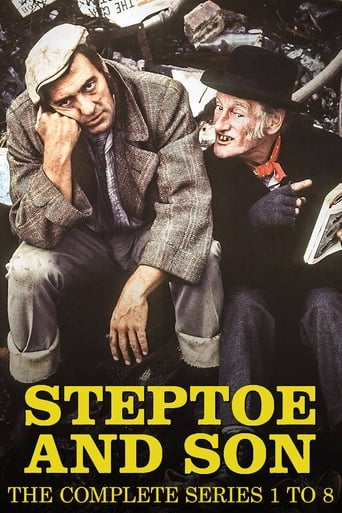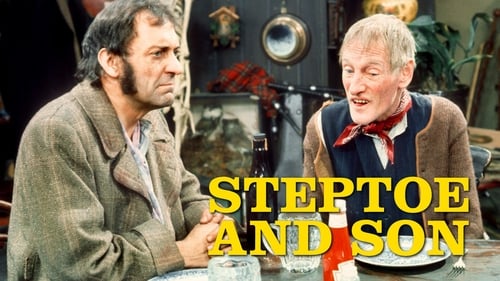Alanjackd
Along with Rab Nesbitt this is equally my top of British comedy. The worst episode holds more laughs than the best of anything else. The idea is so simple in real terms but holds so much span of internal conflict and emotional war. Father and son material, as most men know is like a battlefield of top dogism..Here we have a 40 year old man living with a father who has been widower for the same time with equal demons to come to terms with. If any man out there who had a father who could play football or cards better than him then this is for you. Apart from all this social comment the script was so funny and witty it can be often funny without empathy. Whatever funny you're after , this has it!
welshNick
This was one of the great sitcoms of the 1960's and 1970's and was aired and often repeated on the BBC. Around 50 audio episodes were made as well and although not on the radio any longer are available on the web and cd. This was a story of a father and son team who ran an old fashioned junk business. The father refused to move with the times and the son was forever looking for a way out of the hell that had been created. The 2 characters were very well acted (disliked each other off screen) and the main set was well put together. Albert, the father, would defeat Harold at anything he tried and spent most episodes trying to keep him in his place. Harold, although trying to better himself, was fiercely loyal to his Father and Albert used that to his advantage. Albert was incredibly selfish over this and saw Harold purely as a ticket to comfortable old age. Any time Harold met a girl or had a chance to better himself Albert would purposely mess it up for him as he saw everything like that as a potential threat to the status quo which he enjoyed. This left the viewer quite often with a big feeling of frustration. Harold had chance after chance to leave but did not take them because of the aforementioned loyalty. It had got stale by the end as the conclusions to each episode became very predictable. Good viewing though ultimately flawed. The series never developed, it just stayed the same for far too long.
simon3818
Starting with the films, I was hooked on Steptoe & Son from the age of 7 or 8. Two rag and bone men in London constantly arguing, stopping the other living their life. I couldn't get enough of it. First saw the series in 1991 on the Comedy Channel, the episode Divided We Stand and i was even more hooked. These episodes were based on the most simplest of things. The issue would be there, say in Divided We Stand, Harold wants to improve the house. Albert doesn't. They talk over the problem and a solution is found, in this case they divide the house (rather badly). The comical part is everything including the toilet is divided with a turnstile in the hallway. Then the crunch happens and they are back together again. Each episode followed this principal and, even though topics were repeated (ie going on holiday was used at least 5 times!) it was always fresh. This is definitely a sitcom to collect on DVD as it is so well acted, so well scripted and put together. There is no way you'd fail to laugh at Steptoe & Son. Knighthoods for Mr Galton & Mr Simpson for this alone.
ShadeGrenade
One of the saddest sights I ever saw on television was Wilfrid Brambell, close to tears on 'Nationwide' in 1982 following the sudden death of his 'Steptoe & Son' co-star Harry H.Corbett. The pairing of these great actors, combined with some wonderful scripts by Ray Galton and Alan Simpson, made 'Steptoe' a classic. I think viewers recognised the truthfulness of the situation; rag and bone man Harold desperately wanted to escape from his father's domination to begin a new life on his own, but couldn't because he loved the old man too much. When searching for comedy ideas, today's writers fall into the trap of thinking: "How can I shock the public?". 'Steptoe' did not set out to shock, yet did because it was so real. After a successful run in the '60's, it was revived in the '70's in colour, and these episodes are my favourites, particularly 'Divided We Stand' in which Harold and Albert tried to lead separate lives in the same house. The word 'timeless' is overused these days, but it definitely applies here.



